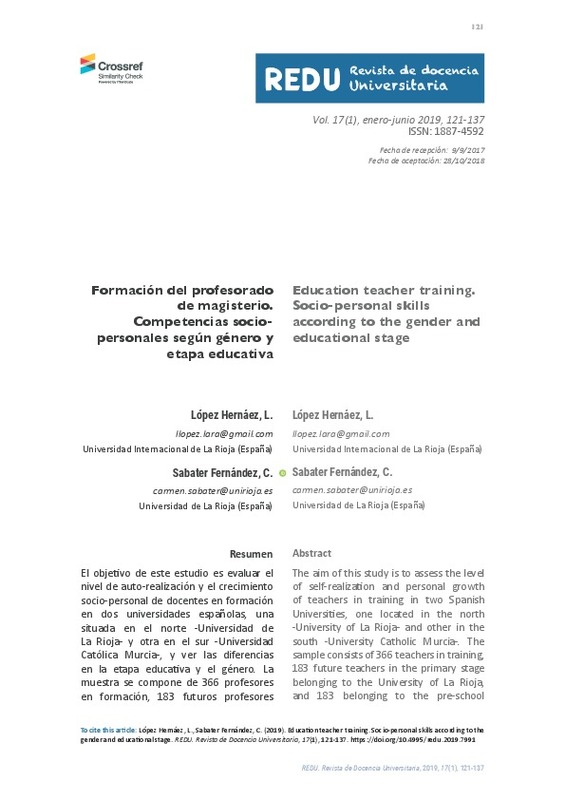JavaScript is disabled for your browser. Some features of this site may not work without it.
Buscar en RiuNet
Listar
Mi cuenta
Estadísticas
Ayuda RiuNet
Admin. UPV
Formación del profesorado de magisterio. Competencias sociopersonales según género y etapa educativa
Mostrar el registro completo del ítem
López Hernáez, L.; Sabater Fernández, C. (2019). Formación del profesorado de magisterio. Competencias sociopersonales según género y etapa educativa. REDU. Revista de Docencia Universitaria. 17(1):121-137. https://doi.org/10.4995/redu.2019.7991
Por favor, use este identificador para citar o enlazar este ítem: http://hdl.handle.net/10251/123079
Ficheros en el ítem
Metadatos del ítem
| Título: | Formación del profesorado de magisterio. Competencias sociopersonales según género y etapa educativa | |
| Otro titulo: |
|
|
| Autor: | López Hernáez, L. Sabater Fernández, C. | |
| Fecha difusión: |
|
|
| Resumen: |
[EN] The aim of this study is to assess the level of self-realization and personal growth of teachers in training in two Spanish Universities, one located in the north -University of La Rioja- and other in the south ...[+]
[ES] El objetivo de este estudio es evaluar el nivel de auto-realización y el crecimiento socio-personal de docentes en formación en dos universidades españolas, una situada en el norte -Universidad de La Rioja- y otra en ...[+]
|
|
| Palabras clave: |
|
|
| Derechos de uso: | Reconocimiento - No comercial - Sin obra derivada (by-nc-nd) | |
| Fuente: |
|
|
| DOI: |
|
|
| Editorial: |
|
|
| Versión del editor: | https://doi.org/10.4995/redu.2019.7991 | |
| Tipo: |
|








